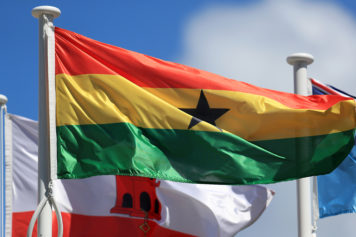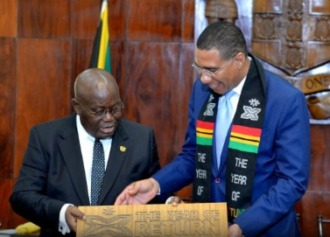
The financing arrangement in place since April 2015 could provide the country with more than $900 million over 3 years to help the country rebound after years of increasing debt, high inflation and currency depreciation.
Ghana, considered one of West Africa’s most stable democracies, until recently was a model for economic growth. However, the economy has taken a turn for the worse, with growth down from 8 percent in 2012 to 3.5 percent in 2015.
IMF Survey recently caught up with Joel Toujas-Bernate, IMF mission chief for Ghana, to discuss Ghana’s economic challenges and what it would take to get the country back on track.
IMF Survey: Ghana, not so long ago, was one of Africa’s strongest economies. What happened? Why is Ghana seeking help from the IMF now?
Toujas-Bernate: Ghana indeed has been ahead of the curve in Africa for many years. It was the first country in the region to gain independence, and achieved great results in terms of poverty reduction and increasing income levels. But the road has been bumpy at times, and in recent years the economic situation in Ghana has deteriorated quite markedly.
We see a combination of factors explaining this deterioration, including macroeconomic policies, institutions and shocks. On the policy side, in 2012, there was a very large expansion in the fiscal deficit which was mostly driven by a swelling of the wage bill as a result of wage increases and a reform of the pay scale, which was much more costly than what was expected at the time. It was accompanied by increases in other spending and over-optimistic revenue projections. So fiscal deficits almost tripled that year.
Monetary policy was also too accommodative. As a result, we have seen a substantial increase in inflation and depreciation of the local currency, which lost 60 percent of its value in the last 2 years.
Institutional rigidities in the public finance system made the subsequent adjustment efforts more difficult. Widespread earmarking of revenues within the budget and large spending conducted by agencies have constrained expenditure reduction. Also, large tax exemptions made reversing revenue shortfall more difficult.
Then, Ghana saw the gold price start to decline at the end of 2012 and energy supply was affected by the impact of lower rainfall on hydroelectric power generations and disruptions to the supply of gas from Nigeria.
All these factors combined resulted in a macroeconomic situation which is much more difficult — high level of debt, high inflation, depreciating currency — and which now needs to be addressed.
Read more at www.imf.org


